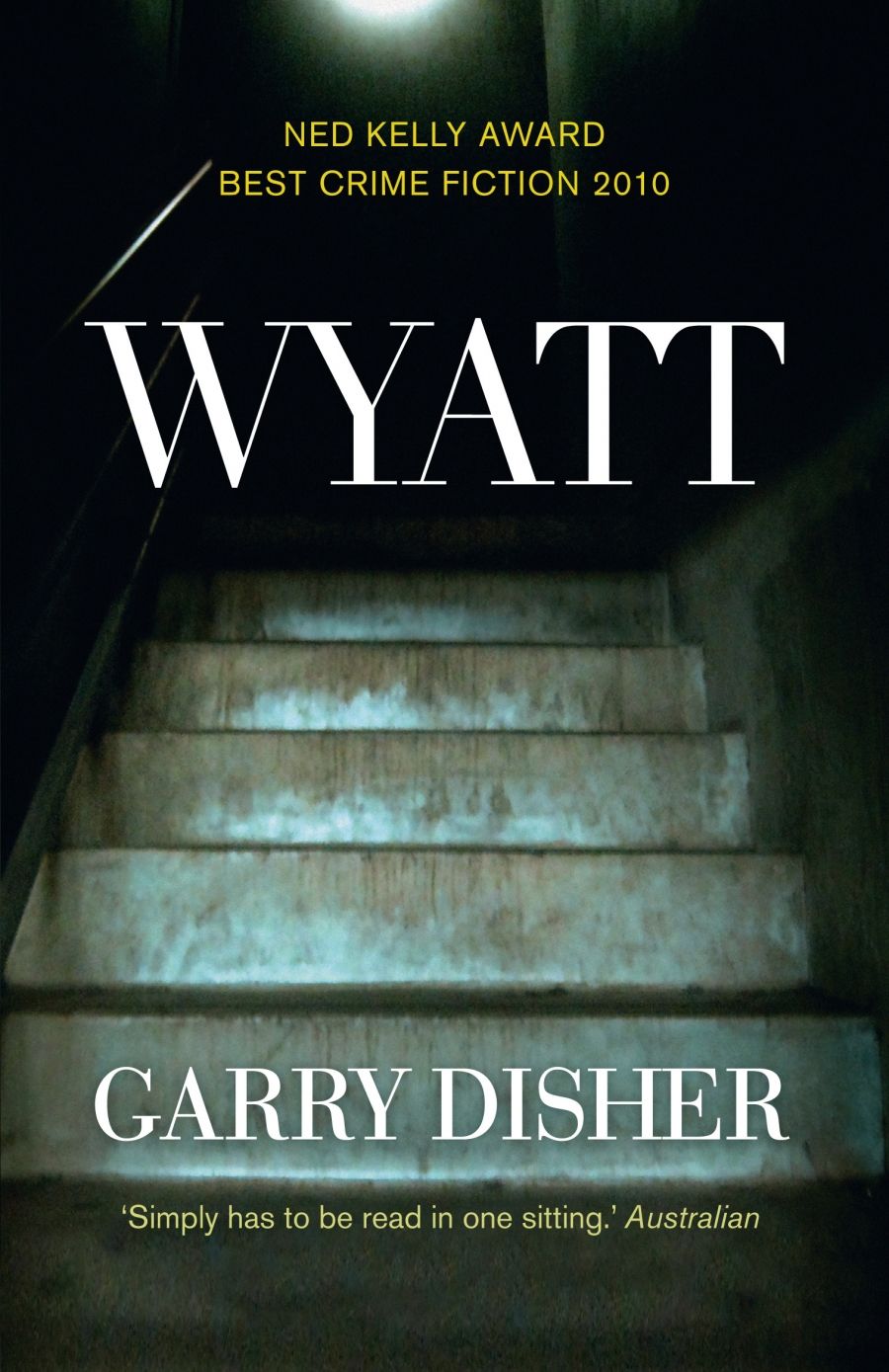
- Free Article: No
- Contents Category: Fiction
- Review Article: Yes
- Article Title: Hard-boiled heist
- Online Only: No
- Custom Highlight Text:
Why ‘Wyatt’? An evocative enough name for an Australian career criminal, but evocative of what, or whom? Of Wyatt Earp, perhaps, another gunman and homicide, if occasionally and famously on the right side of the law? Or Sir Thomas Wyatt, Tudor courtier, sensitive lover, diplomat and poet, who witnessed the execution of Anne Boleyn while himself a prisoner in the Tower of London? Garry Disher’s Wyatt has been in prison, and witnessed many deaths; indeed, facilitated some of them.
- Book 1 Title: Wyatt
- Book 1 Biblio: Text Publishing, $32.95 pb, 288 pp
- Book 1 Readings Link: https://www.booktopia.com.au/wyatt-garry-disher/book/9781921656811.html
He’d been watching the cash register idly. Most people were paying by card. Where could a man like Wyatt lift cash these days? Money was moved around electronically. If cash was used, it was stored and protected by the kinds of high-tech security that he couldn’t hope to crack or bypass, not without the help of experts and costly equipment. That left paintings and jewellery, which were also highly protected and could only be shifted by a fence who’d give you a few dollars and then sell you out.
The core of the plot of Wyatt is contained in that paragraph, and that’s all you’re going to find out here about what happens. Why? Well, there is an unwritten code, which I confess to not always having kept, of reviewers not revealing what happens in the conclusion of novels. Had I forgotten this, a note from the Editor reminds me that ‘in reviewing a novel, ABR has a responsibility to respect the author’s intentions and not to divulge too much information about the plot – especially the dénouement’. This applies in spades when it comes to crime fiction.
So, what do we talk about when we talk about crime fiction? Well, we can discuss style and rhetoric. Disher is a master of the low-key, the economical, the subtle. Wyatt’s account of cleaning his new pistol is worthy of Hemingway in its attention to detail. ‘Hard-boiled’ is still the expression that comes to mind. Crime writing is also distinguished by its penchant for hard-boiled similes. The provider of Wyatt’s new pistol, Ma Gadd, is said, when she hits her feckless son, to have ‘hands like waffle-irons’. The ever-undemonstrative Wyatt is said to have ‘a smile like a slash in his face’. Though none of these, and not many other contemporary crime writers either, can vie with the master of the hard-boiled simile, the William Faulkner of Sanctuary (1931), whose sociopath Popeye has a face with the ‘vicious depthless quality of stamped tin’, and whose eyes looked ‘like rubber knobs, like they’d give to the touch and then recover with the whorled smudge of the thumb on them’. The similes reduce the human to an industrial product.
As is often the case with the best genre fiction, Wyatt has a credible gritty social dimension and concerns. (Consider, for comparison, how it took Hurricane Katrina and the base behaviour of the Bush administration and the US federal government regarding the fate of New Orleans to enrage James Lee Burke in The Tin Roof Blowdown, back to the top of his considerable form.) Wyatt begins in Frankston,
flat and disappointed beside the bay. Frankston was testament to the notion that you couldn’t have too much commerce, but it was cheap, noisy, exhausted commerce, for this was an area of high unemployment and social distress.
Disher registers a different change, in that Wyatt refuses to handle drugs or drug money, despite his informant Eddie Oberin’s telling him, ‘Mate. That’s where the real money is.’ But Wyatt is old-fashioned, like the older generation members of The Sopranos crew, or the older Melbourne mafia in Underbelly.
Let’s hear it for the old folks. This reviewer, to come clean, feels obliged to confess that, if asked to nominate his favourite recent Australian crime novel, he would reply: ‘Truth, by Peter Temple. Nothing tired about that.’


Comments powered by CComment